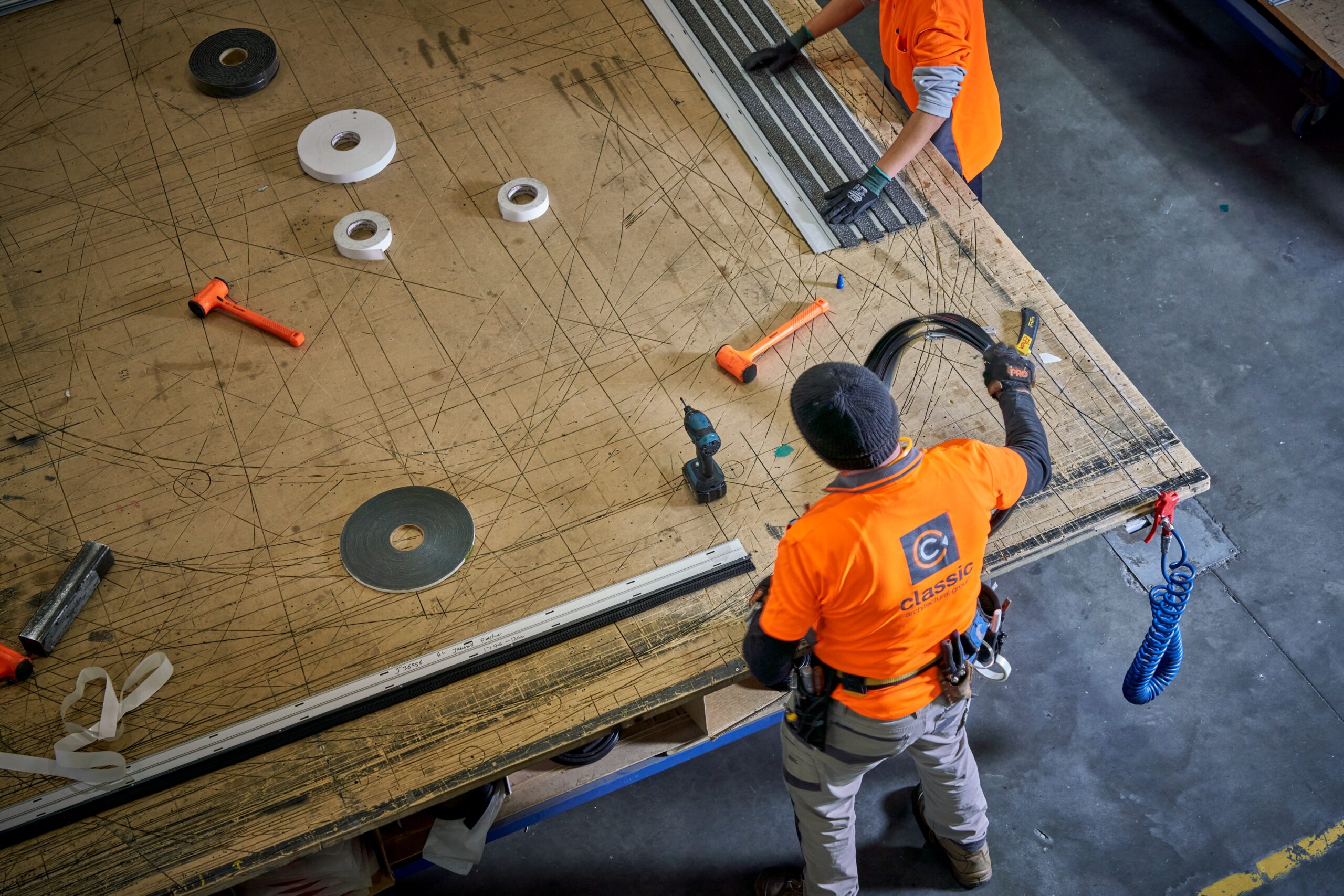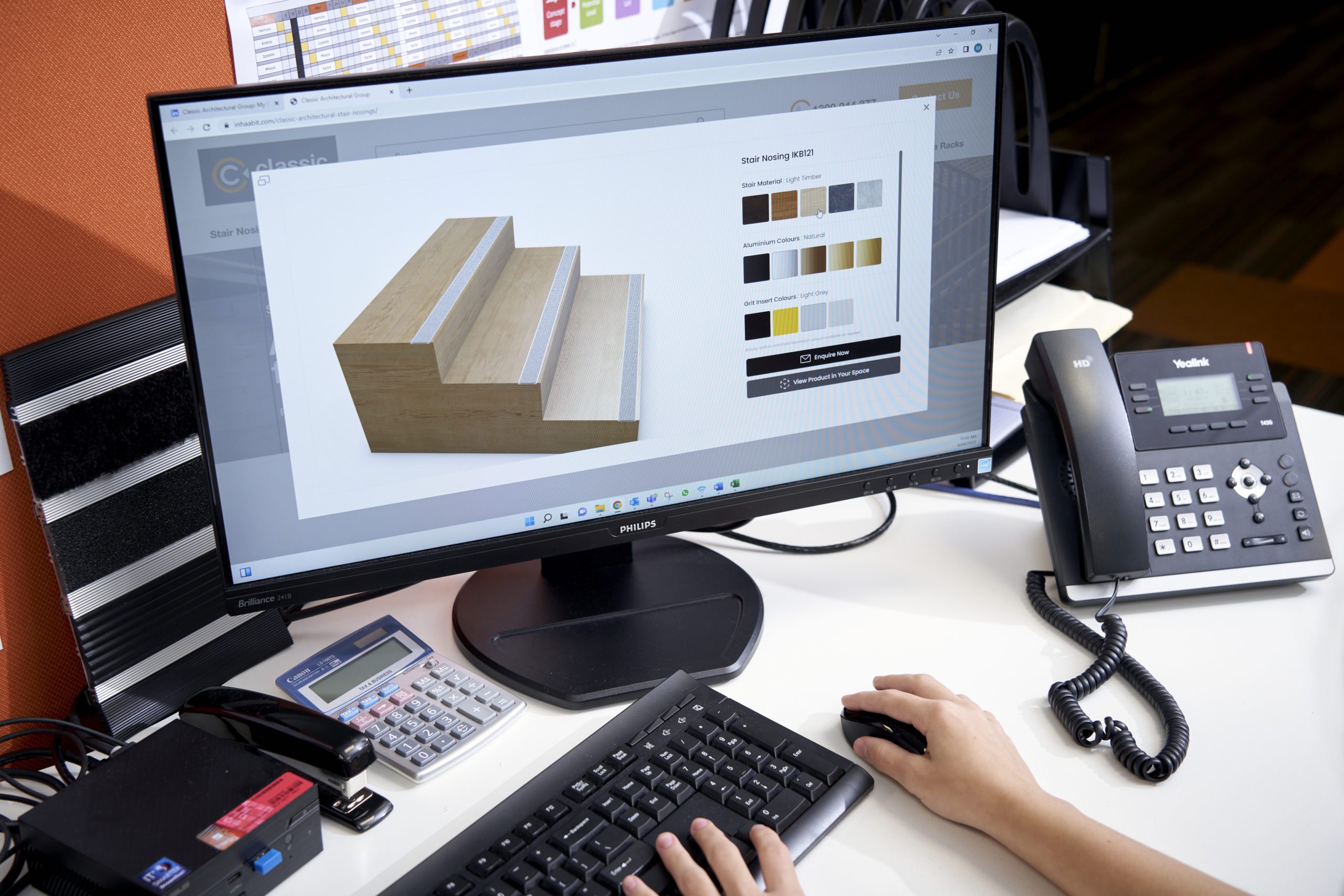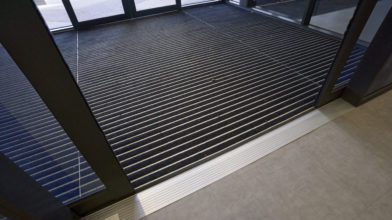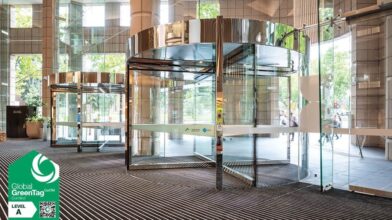What is sustainable manufacturing?
Sustainable manufacturing can be defined as the process of creating manufactured products, using financially viable methods, with minimised adverse environmental impacts while preserving energy and natural resources.
Unlike the traditional linear model of manufacturing, sustainable manufacturing focuses on eliminating waste by keeping resources in use for as long as possible. Aside from creating a circular economy to protect the environment, sustainable manufacturing drives profitable benefits including increasing operational efficiency, providing competitive advantage and building public trust.
As we become more eco-conscious than ever, companies need to shift towards making sustainability-driven decisions in their everyday approach.
In this article, we’ll discuss the importance of sustainable manufacturing and how we’re playing our part at Classic Architectural Group.
The importance of sustainable manufacturing
Whether directly or indirectly, our survival and well-being depend on our natural environment. All sustainability efforts (or the lack of) can have a substantial environmental, economic and social impact on present and future generations.
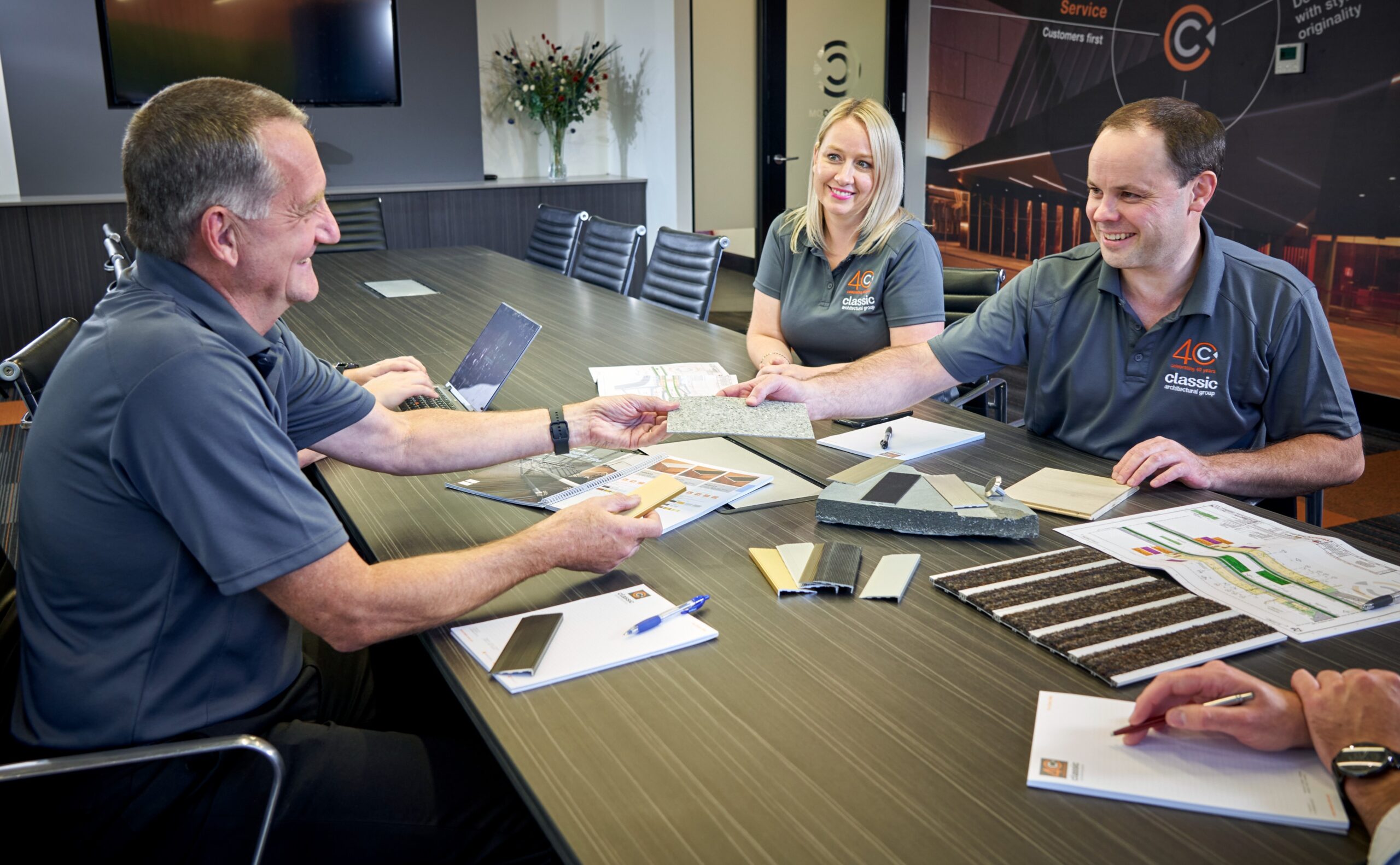
For businesses, sustainable manufacturing offers several short and long-term benefits including:
- Reduced environmental impact – Minimised resource consumption, pollution, and waste generation.
- Cost savings – Reduced operational costs due to increased efficiency.
- Supply chain resilience – By prioritising local resources and diversifying suppliers, disruption risks are mitigated.
- Enhanced brand reputation – From employees to the wider community, sustainable companies can reinforce a positive brand image.
- Long-term viability & competitiveness – Embracing sustainability encourages companies to innovate new technologies and open up new opportunities.
The future of sustainable manufacturing – where to from here?
Based on the Climate Change Performance Index 2023, Australia continues to be among the lowest in the world when it comes to environmental protection, ranking 55th out of 63 possible places.
With abundant renewable energy sources, this is a wake-up call for Australia to future-proof its manufacturing industries and reduce its carbon footprint by promoting local manufacturing.
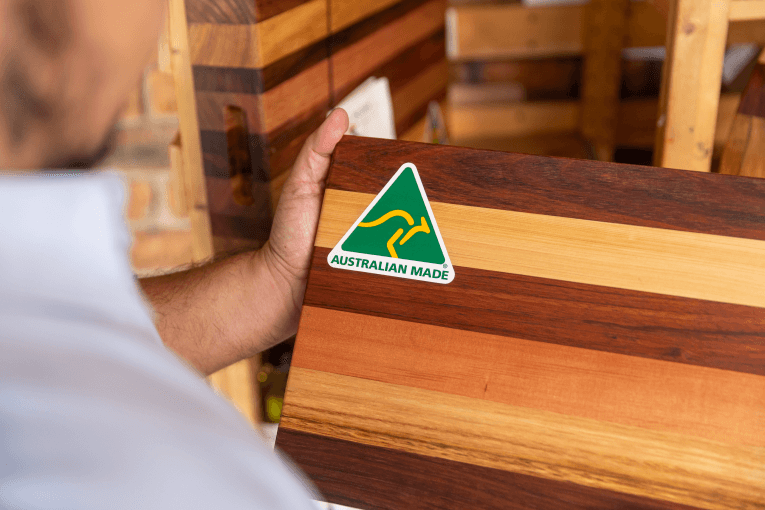
Many other industrial powerhouse countries, including the EU, China, and Canada, are already spearheading major new incentives to support sustainable manufacturing and increase their global competitiveness.
Businesses must work together to overcome the common challenges faced when implementing sustainable manufacturing, ranging from significant upfront investment costs to lack of education and resistance to change.
While it isn’t an easy task by any means, the costs of inaction will soon far outweigh the immediate costs.
However, the 2023 CommBank Manufacturing Insights Report reveals a shift in the right direction amongst the surveyed Australian manufacturers, with 88% saying sustainable manufacturing is an important part of their business strategy – 36% of which also consider it an essential plank.
According to Nicki Hutley, Climate Councillor and independent economist, “a new global Industrial Revolution is underway as the world aims to get to net zero emissions and limit dangerous global warming, and this is shifting investment away from polluting industries towards clean ones” and a significant transformation is required to stay competitive in a world where net zero will become business as usual.
Taking advantage of rapid technological advancements, collaborative partnerships and a greater emphasis on supply chain transparency, sustainability-focused companies can look forward to tackling climate change, growing their profits, and boosting the economy.
Classic’s commitment to sustainable manufacturing practices
At Classic, our goal has always been to make public spaces safe, attractive and accessible to all. In addition to building accessible communities, we are committed to sustainability and reducing our environmental footprint across every touchpoint.
From prioritising local manufacturing to promoting an environmentally responsible work culture, we proactively establish environmental objectives and monitor our progress towards achieving our sustainability goals.
With the continued support of our clients, partners, and employees, Classic takes ownership of what we make, where it goes, and where it will end up.
Where possible we fully recycle, including the use of recycled raw materials, and carry out stringent product testing practices to conserve resources and reduce carbon emissions
Learn more about Classic’s commitment to environmental sustainability.
Introducing our Low Impact For the Environment LIFE® Program
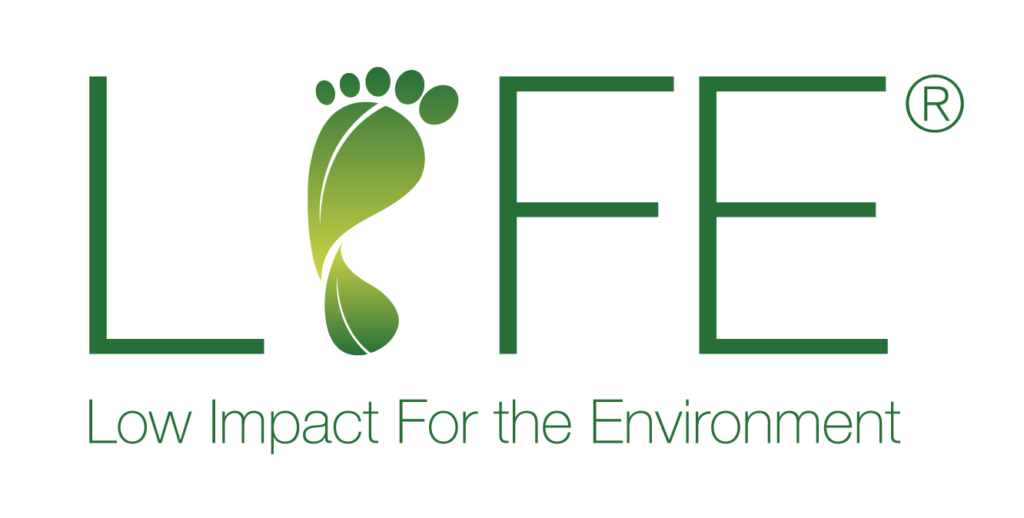
Bolstering Classic’s sustainability-focused business infrastructure, our Low Impact For the Environment LIFE® Program provides a consistent and transparent approach to evaluating the environmental impact of our products and services.
Complying with all legislative requirements and adopting the central Green Building Council of Australia’s Code of Conduct, our LIFE® Program covers a growing number of key initiatives including stringent recycling procedures and green certification.
Learn more about Classic’s LIFE® Program.
Australian Made and GUT certified Entrance Matting
Helping to reduce ‘Sick Building Syndrome’ and create a better living environment, Classic’s range of commercial entrance matting, safety stair nosing and tactile indicators follows strict product testing procedures to enhance safety and accessibility.
Our Integra Vantt entrance matting is proudly Australian Made and GUT certified.
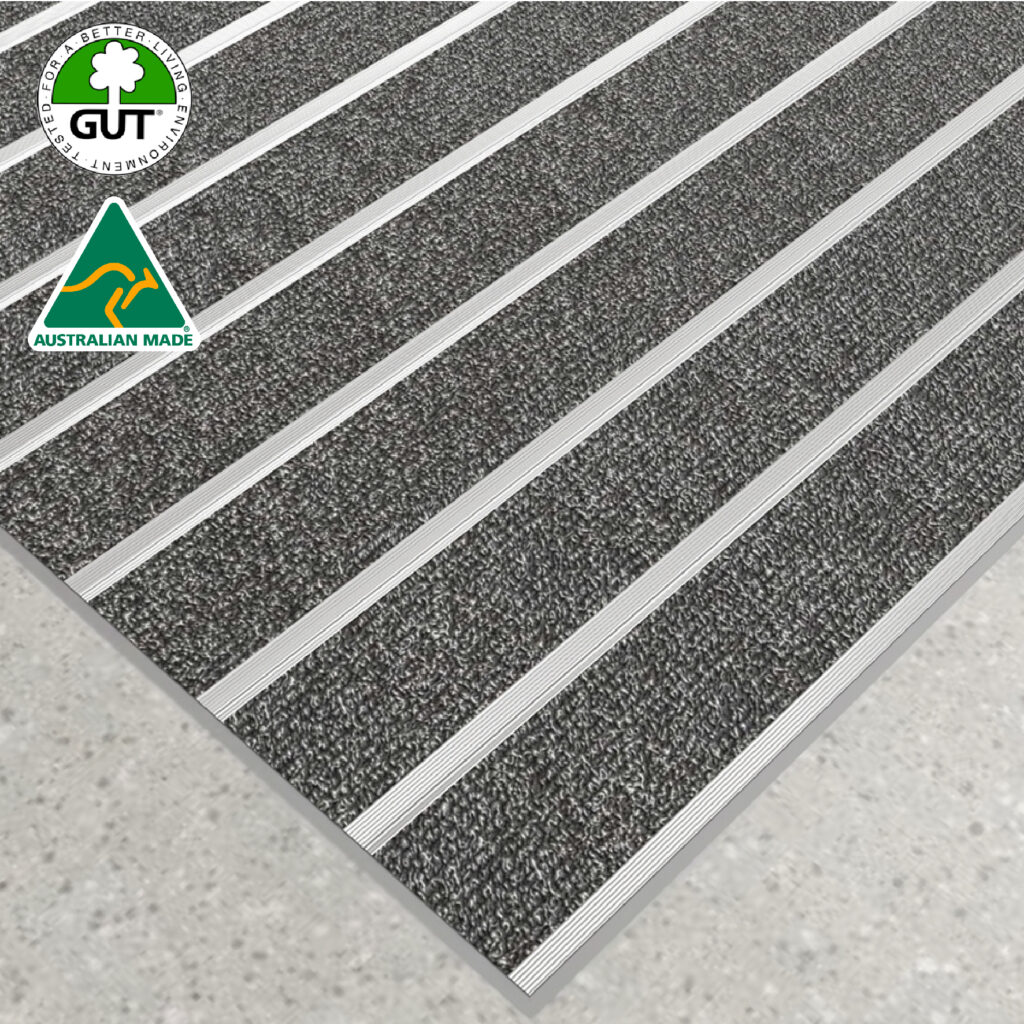
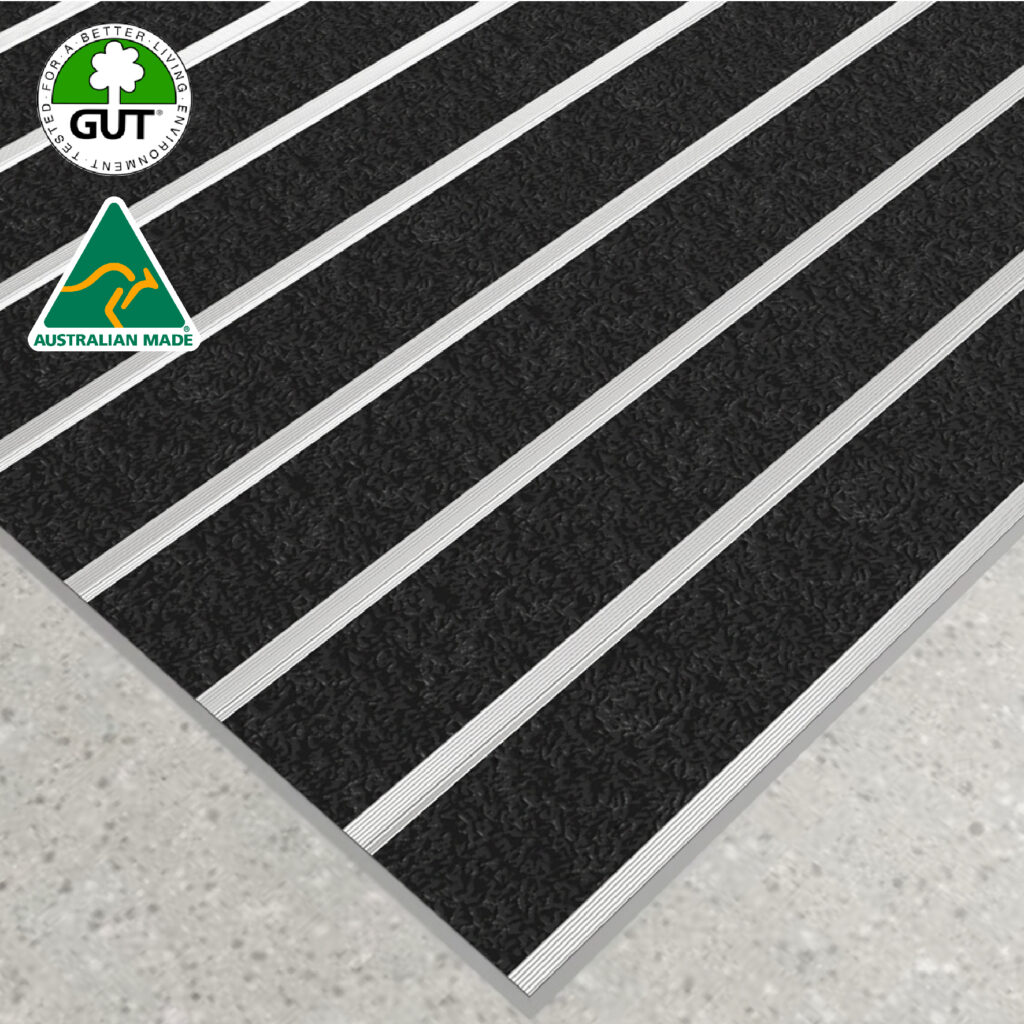
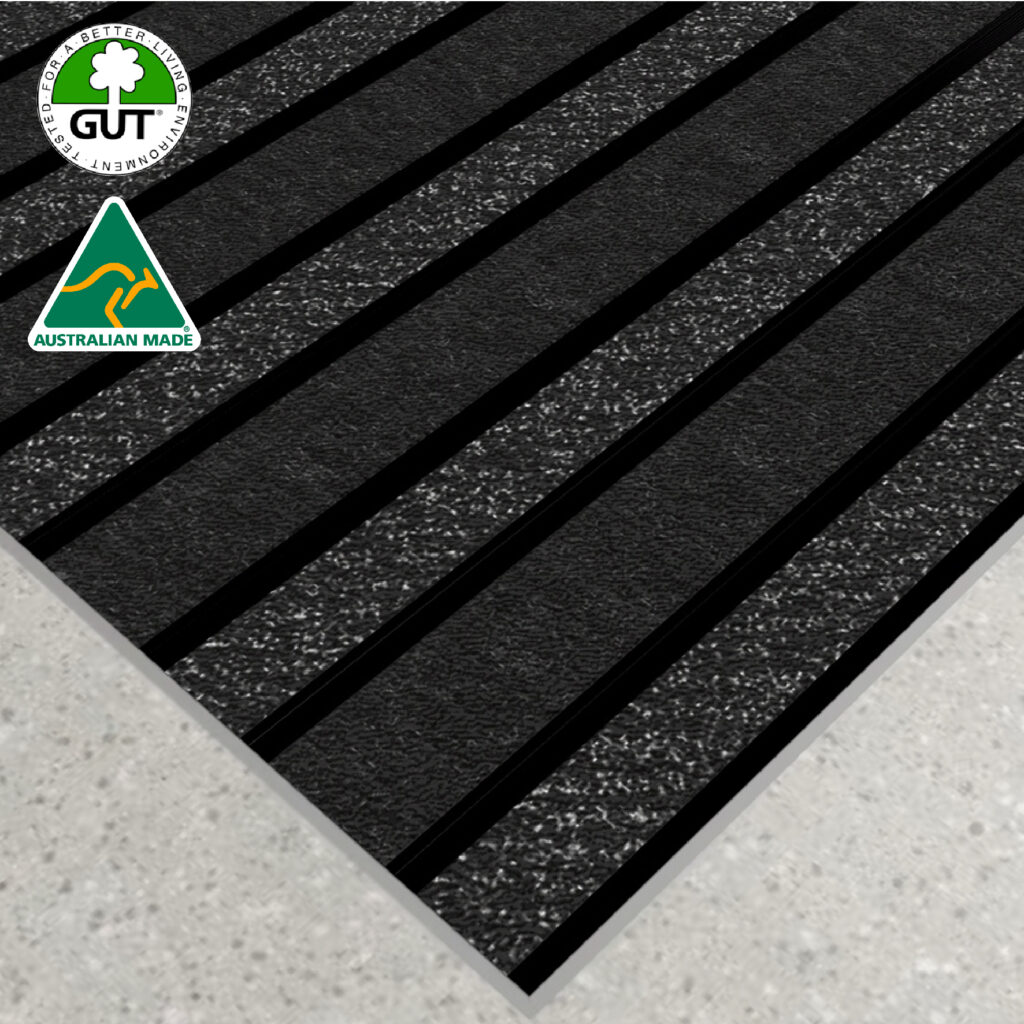
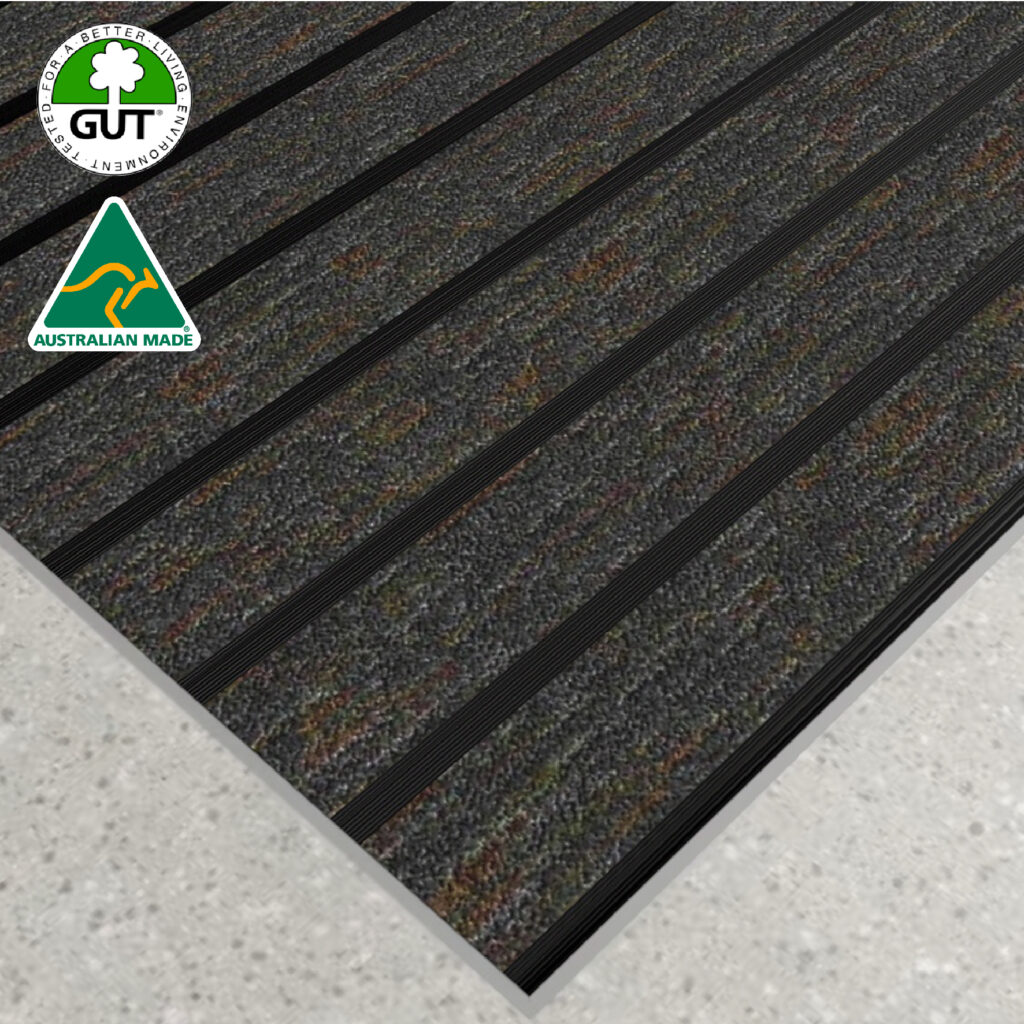

The GUT certification ensures products meet stringent international green ratings for environmentally friendly manufacture, recyclability and low VOC levels.
Explore our recently completed 6-Star Green Star rated projects
Officeworks Head Office Chadstone Place
This $20M redevelopment at Chadstone Place has been described as one of Australia’s most energy-efficient office precincts.
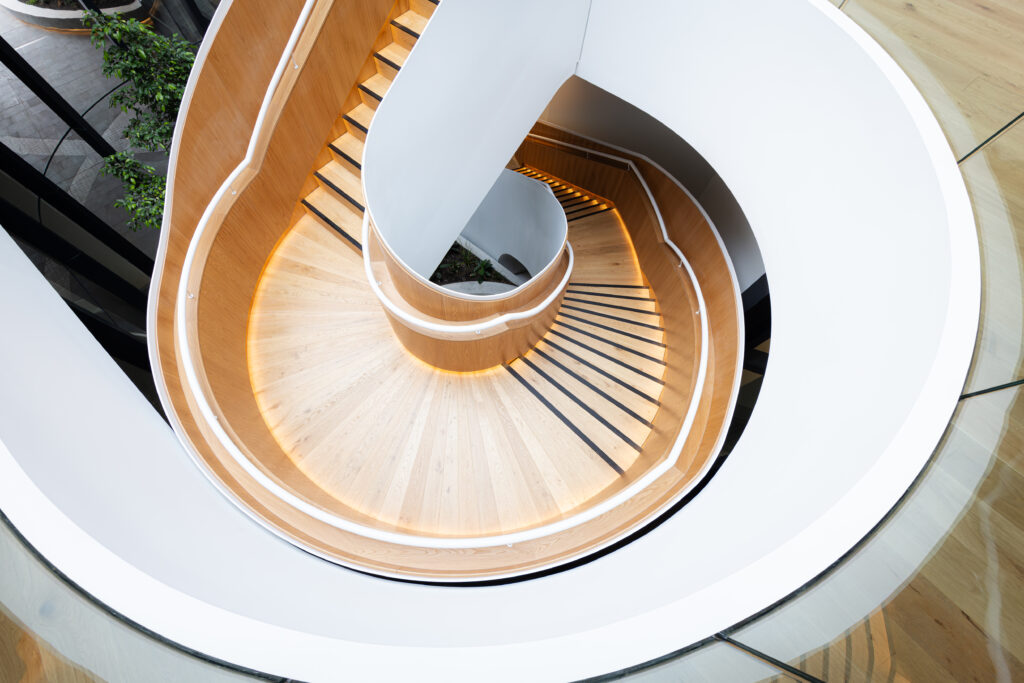
With an all-new high-efficiency lighting system and many other environmentally-friendly features, the 8,100 sqm Chadstone Place has achieved a 6-Star Green Star – Design certification and an Australian-first International Living Future Institute Net Zero Carbon project certification.
Brought to life with biophilic and sustainability-focused design features, it is also a NABERS 5.5-Star Energy and 4-Star Water rated building.
Classic Architectural Group supplied and installed our recyclable SNR019 Classic Tredfx Safety Stair Nosings, alongside our popular SH10N and SH10N-B Classic Tredfx Tactiles.
For more details on this project, see Case Study: Officeworks Head Office Chadstone Place.
Northcote Aquatic and Recreation Centre
Completed in October 2023, the Northcote Aquatic and Recreation Centre (NARC) is a 6-Star Green Star rated facility featuring indoor and outdoor pools, a warm water pool, and additional programming spaces.
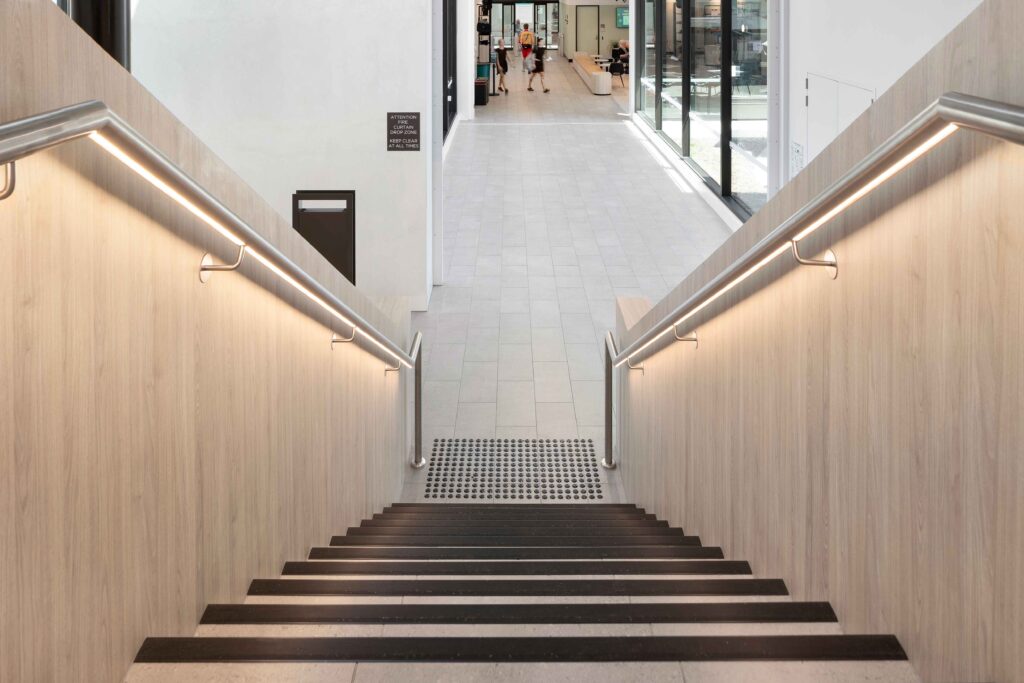
Demonstrating the City of Darebin’s leadership in climate action and commitment to environmentally sustainable projects, the $59 million project was designed in close consultation with the community and the Wurundjeri Woi Wurrung Cultural Heritage Aboriginal Corporation.
Classic Architectural Group supplied and installed a wide range of products including our GUT-certified Classic Integra Vantt 5500 entrance matting, recyclable SNR019 Classic Tredfx Safety Stair Nosings and SH10N Classic Tredfx Tactiles.
For more details on this project, see Case Study: Northcote Aquatic and Recreation Centre.
555 Collins Street
A new commercial development located in the heart of the Melbourne CBD, 555 Collins Street is a 37-storey tower combining office and retail spaces. Using grid optimisation and low-carbon concrete, the building achieved the highest possible Green Star rating with a 6-star award.
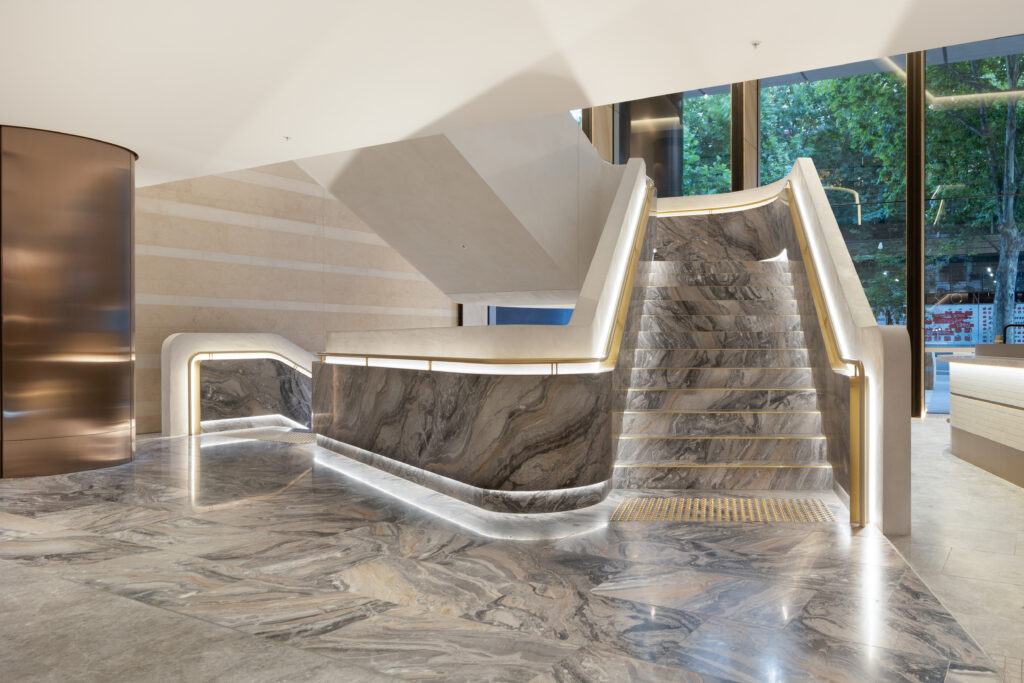
With 84,000 sqm of office space and 2,300 sqm of retail space, 555 Collins Street celebrates Melbourne’s laneway culture, acting as a social hub for both tenants and the public.
Anticipating the needs of the future workforce, 555 Collins Street achieved a Platinum WELL Rating, 6-star Green Star Design rating, WIRED Platinum Score.
They are also targeting to be Carbon Neutral in operations, 6-star NABERS Waste rating, 5-star NABERS Energy rating, 4-star NABERS Water rating, and a 5-star NABERS Indoor Environment rating.
Classic Architectural Group supplied and installed our recyclable SH10N and SH10N-B Classic Tredfx Tactiles, alongside a range of our other tactile indicators, stair nosings, entrance matting and skate deterrent products.
For more details on this project, see Case Study: 555 Collins Street.
Classic is proud to be your sustainable, environmentally friendly partner of choice
Supporting your sustainability goals, you can rely on Classic Architectural Group to enhance your project with environmentally responsible products and services.
We’re here to help you create spaces that are not only enjoyed by current generations but those of the future as well – together, we can do our part to better serve the wider community while preserving the environment.
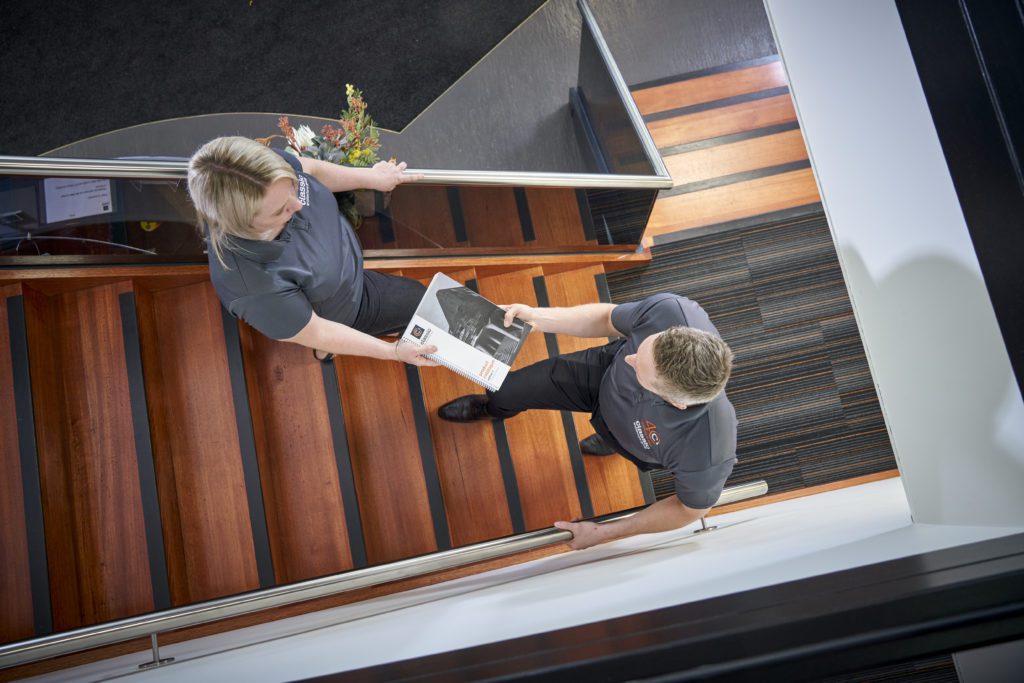
For more information on our current range of stair and flooring products, download our 2024 product catalogue. Partnering with building professionals Australia-wide, you can also explore our recently completed projects for more inspiration.
To discuss your specific project needs or request a quote, contact us by calling 1300 244 377 or sending an online enquiry today. We look forward to helping you put your best foot forward.
